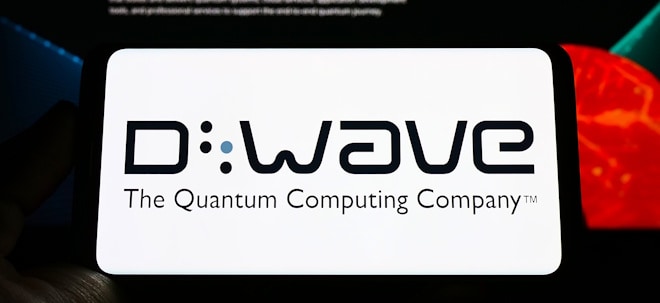What is Oncophage?
In April 2008, Oncophage® (vitespen; formerly HSPPC-96) was approved in Russia for the treatment of kidney cancer patients at intermediate risk for disease recurrence. The company expects to launch Oncophage in Russia in the second half of 2008. Oncophage is approved only in Russia and Antigenics expects to submit to the European Regulatory Agency before the end of 2008.
Outside Russia, Oncophage is an investigational patient-specific vaccine designed to treat cancer with the intent of minimizing side effects. Currently being evaluated in clinical trials, treatment with Oncophage is designed to target only cancerous cells — not healthy normal cells. As a result, Oncophage is designed to limit the toxicities associated with traditional broad-acting cancer treatments.
Oncophage has been granted fast track and orphan drug designations from the US Food and Drug Administration for kidney cancer and metastatic melanoma. Oncophage has orphan drug status for kidney cancer from the European Medicines Agency.
How does Oncophage work?
Based on proprietary heat shock protein technology, the Oncophage vaccine is designed to capture the particular cancer’s ‘fingerprint.’ This fingerprint contains unique antigens (substances that can provoke an immune response) that are present only on that particular patient’s specific cancer cells. Injection of the vaccine is intended to stimulate the patient’s immune system to recognize and attack any cells bearing the specific cancer fingerprint. (animation)
Learn more about heat shock proteins and HSP technology.
How is Oncophage made?
Oncophage is a vaccine made from individual patients’ tumors. Patients have surgery to remove part or all of the cancerous tissue, and the tumor tissue is shipped overnight to Antigenics’ manufacturing facility in Massachusetts.
Using a proprietary manufacturing process, the heat shock protein gp96 and its associated peptides are isolated from the tumor. The complexes are extracted and purified from each sample, then sterilely filtered and placed into vials. The final product is subject to extensive quality-control testing, including sterility testing of each lot. The vaccine is shipped frozen back to the hospital pharmacy for use when the patient has recovered from surgery.
What’s the difference between Oncophage and other treatments?
Oncophage is different because it’s:
A vaccine that may help your immune system fight your cancer
Patient-specific — it’s created from cells from your own body
A therapy designed to target specific tumor cells only, thereby leaving healthy cells alone
What is treatment with Oncophage like?
Should Oncophage be successfully prepared from a patient’s tumor, the patient receives the vaccine usually within four to eight weeks after surgery (once the patient has recovered from surgery). The patient receives one injection of Oncophage vaccine once a week for four weeks, then one Oncophage injection every other week. Oncophage treatment is designed to be given on an outpatient basis.
How many people have received Oncophage therapy?
More than 750 cancer patients in more than a dozen clinical trials around the world have received Oncophage in clinical trials. Many of these patients had advanced disease, including kidney cancer, melanoma and colon cancer, and had not responded to traditional cancer treatments.
Find out more about results of past clinical trials.
What are the side effects of Oncophage treatment?
To date, the most common side effects reported in clinical studies with Oncophage were injection-site reactions, pain (in extremities, back, chest, abdomen), nausea, constipation, fatigue, fever, diarrhea, edema (organ/tissue swelling due to excess fluids), weight loss, nasopharyngitis (cold symptoms), arthralgia (pain in the joints), dizziness, anxiety, depression, cough, dyspnea (difficulty breathing), headache, vomiting, anemia, insomnia (difficulty sleeping), anorexia (loss of appetite) and asthenia (weakness).
In what kind of cancers is Oncophage being tested?
The Brain Tumor Research Center at the University of California, San Francisco, is currently evaluating Oncophage in an investigator-sponsored, Phase 1/2 study as a treatment for recurrent glioma. The primary goal of the study is to establish the feasibility, safety and preliminary efficacy of Oncophage vaccination in glioma patients. Learn more about this trial.
Oncophage has also been evaluated in two international Phase 3 trials in kidney cancer and metastatic melanoma, as well as studies in several other cancers, such as non-small cell lung cancer, lymphoma, colorectal cancer, pancreatic cancer and gastric cancer. Antigenics also plans to investigate Oncophage in clinical trials in combination with other therapies
What are the results from clinical trials of Oncophage?
Data from Antigenics’ Phase 3 trial of Oncophage in kidney cancer showed a 45-percent improvement in recurrence-free survival associated with Oncophage in a well-defined subgroup of earlier stage (better-prognosis) patients, although a significant improvement was not observed in the overall patient population. Additional analysis is ongoing.
In a Phase 3 study of Oncophage in metastatic melanoma, overall median survival was 29 percent longer in patients who received at least 10 injections of Oncophage compared with physician’s choice regimen.
Preliminary findings from an investigator-sponsored, Phase 1/2 study evaluating Oncophage as a treatment for recurrent glioma, being conducted at the University of California, San Francisco, showed tumor-specific immune response in all six treated patients, which may be associated with clinical benefit in this patient population. Additional data will be presented in April 2007 at the annual meeting of the American Association of Neurological Surgeons |


 Thread abonnieren
Thread abonnieren

